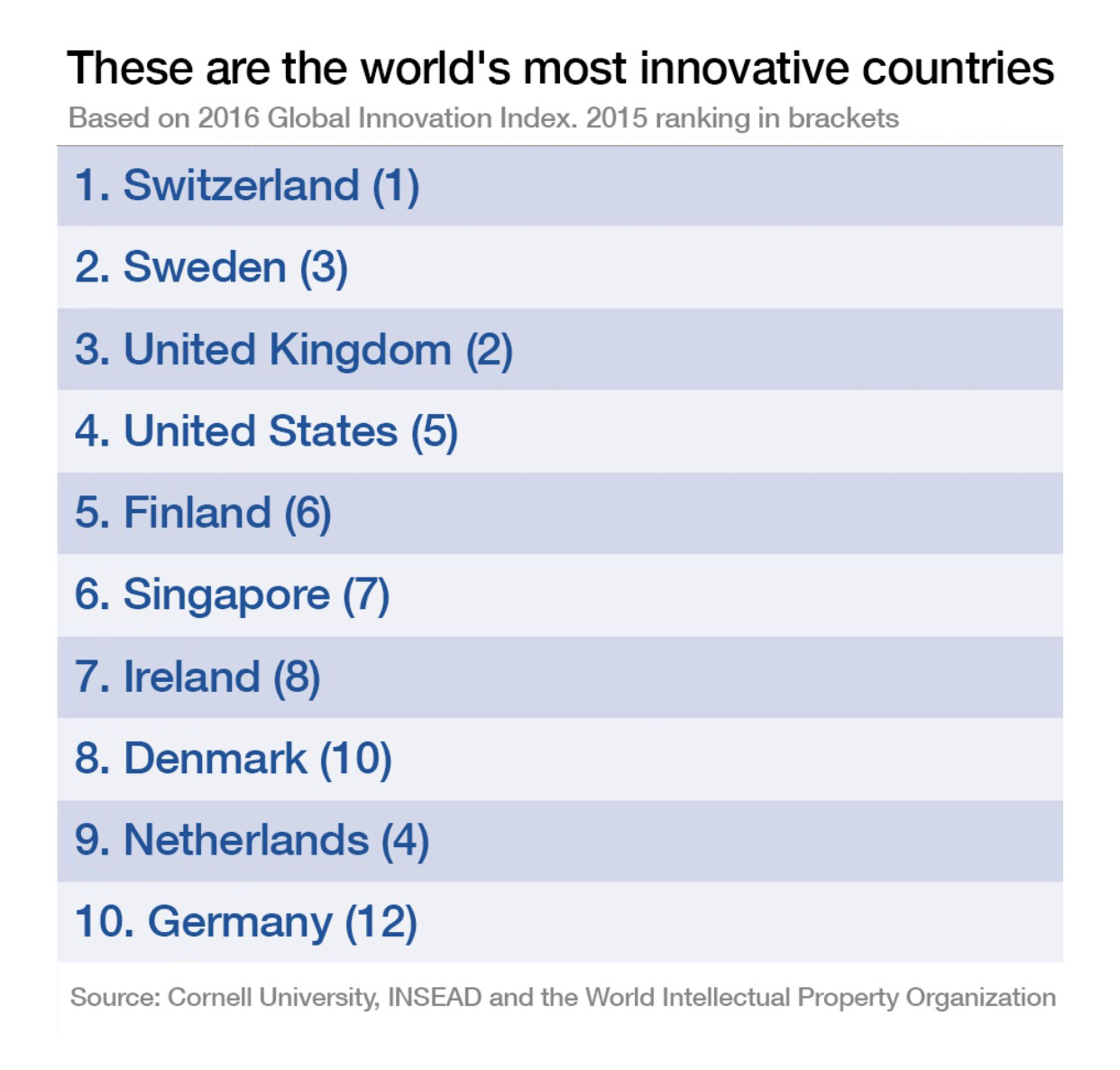The world’s most innovative economies, Sweden 2nd best
Switzerland has held onto its title as the world’s most innovative economy in the latest Global Innovation Index.
The 2016 index, produced by the World Intellectual Property Organization (WIPO), Cornell University and INSEAD, assesses the innovation performance of 128 global economies. This year is notable for China’s breakthrough into the top 25. It marks the first time a middle-income country has taken a place among highly-developed economies in the survey’s 9-year history.
Switzerland claims the top spot as the world’s most innovative economy – a position it has held for six years. The European nation scores highly on a range of indices, from government effectiveness to business sophistication, and creative goods and services.

Sweden climbs one place to take second, swapping places with the United Kingdom. It scored highly on infrastructure, human capital and research.
An all-European top 3 is completed by the United Kingdom. Like Sweden, it scored highly for infrastructure, as well as market sophistication and creative outputs.
For the first time since the index started, China takes a place in the top 25, rising from 29th last year.
The report attributes this to improved performance, as well as methodological changes in the index. However, the authors highlight the continuing “innovation divide” between the developed and developing world. The majority of innovative activity is concentrated in high-income economies and a few middle-income economies, including China, India and South Africa.
However, there is good news, with several African economies named “innovation achievers”. They include countries like Kenya, Madagascar and Rwanda, and were found to perform at least “10% higher than their peers for level of GDP”.
Innovation remains a key driver of economic growth, as highlighted by both the Global Innovation Index and the World Economic Forum’s Global Competitiveness Report.Innovation is one of the 12 pillars of competitiveness in the Forum’s report, and it looks set to play an ever more important role, says Margareta Drzeniek Hanouz, one of the economists behind the report.
“In the future, a country’s socio-economic progress will be increasingly determined by its ability to innovate and adapt quickly to new environments. Scientific and technological research and development, creativity, new business ideas and the ability to implement new business models will also increasingly determine a country’s success.”
Source: WEF
You must be logged in to post a comment.